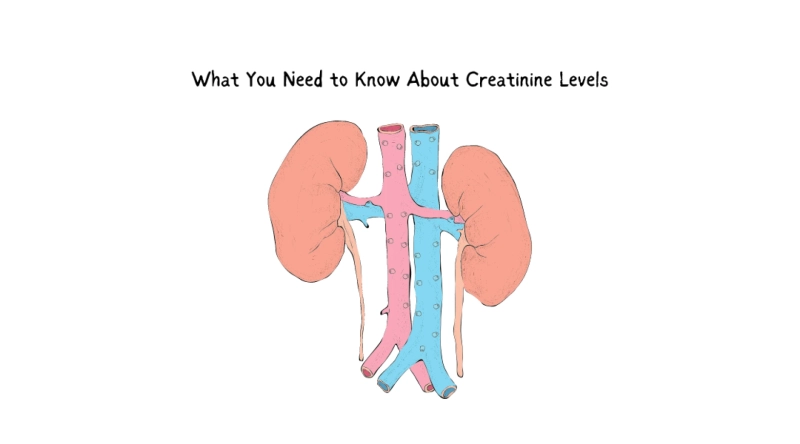A creatinine test is a measure of how well your kidneys are performing their job of filtering waste from your blood. Creatinine is a chemical compound left over from energy-producing processes in your muscles and heart. The creatinine level in your blood gives you information about kidney health and can show the presence of certain diseases.
What are the Signs of Low Creatinine Levels?
There are a few signs that may indicate that someone has low creatinine levels. These can include feeling tired all the time, having muscle weakness, and difficulty concentrating. Additionally, people with low creatinine levels may have trouble regulating their body temperature and may experience nausea and vomiting. If you experience any of these symptoms, it is important to speak with a doctor as soon as possible to get your creatinine levels checked.
How do Low Creatinine Levels Affect Your Kidneys and Health?
There are a few things that you should know about creatinine levels and how they can affect your kidneys. For one, having low creatinine levels can indicate that your kidneys aren't functioning as well as they could be. This is because creatinine is a waste product that's produced when your body breaks down muscle tissue. If your kidneys aren't able to filter out all of the creatinine, it can build up in your blood and cause damage.
In addition to kidney problems, low creatinine levels can also lead to other health issues such as fatigue, loss of appetite, and muscle weakness. If you're experiencing any of these symptoms, it's important to see a doctor so they can run some tests to check your creatinine levels.
If you have kidney disease or another condition that's causing your low creatinine levels, there are treatments available that can help improve your kidney function and overall health. So if you're concerned about your Creatinine levels, be sure to talk to your doctor so they can help you determine the best course of action.
What could be Causing Low Creatinine Levels?
There are a number of potential causes for low creatinine levels. This could be due to renal impairment, where the kidneys are not able to filter creatinine from the blood adequately. It could also be due to liver dysfunction, where the liver is not able to metabolize creatinine effectively. Additionally, low levels may be seen in people who are dehydrated or have low muscle mass.
What is a Normal Creatinine Level and Blood Urea Nitrogen (BUN) Level?
A creatinine level is a measure of how well your kidneys are functioning. A normal creatinine level is 0.6 to 1.2 mg/dL for men and 0.5 to 1.1 mg/dL for women. A blood urea nitrogen (BUN) level is a measure of the amount of nitrogen in your blood that comes from urea, a waste product of protein metabolism. A normal BUN level is 7 to 18 mg/dL.
Causes of High Creatinine Levels
There are many possible causes of high creatinine levels in the blood. Kidney disease is the most common cause, but it can also be caused by other medical conditions or certain medications.
Medical conditions that can cause high creatinine levels to include:
Kidney diseaseLiver diseaseHeart failureDehydrationCertain medications (such as ACE inhibitors, NSAIDs, and some antibiotics)If you have high creatinine levels, it's important to talk to your doctor to find out the underlying cause. Treating the underlying condition can often help to lower creatinine levels.
Conclusion
If your creatinine levels are high, it's important to take steps to lower them. There are a few things you can do, including changing your diet, getting more exercise, and avoiding certain medications. If you have kidney disease, your doctor may also recommend treatments specifically for that. By keeping your creatinine levels under control, you can help keep your kidneys healthy and avoid other health problems down the road.
0


